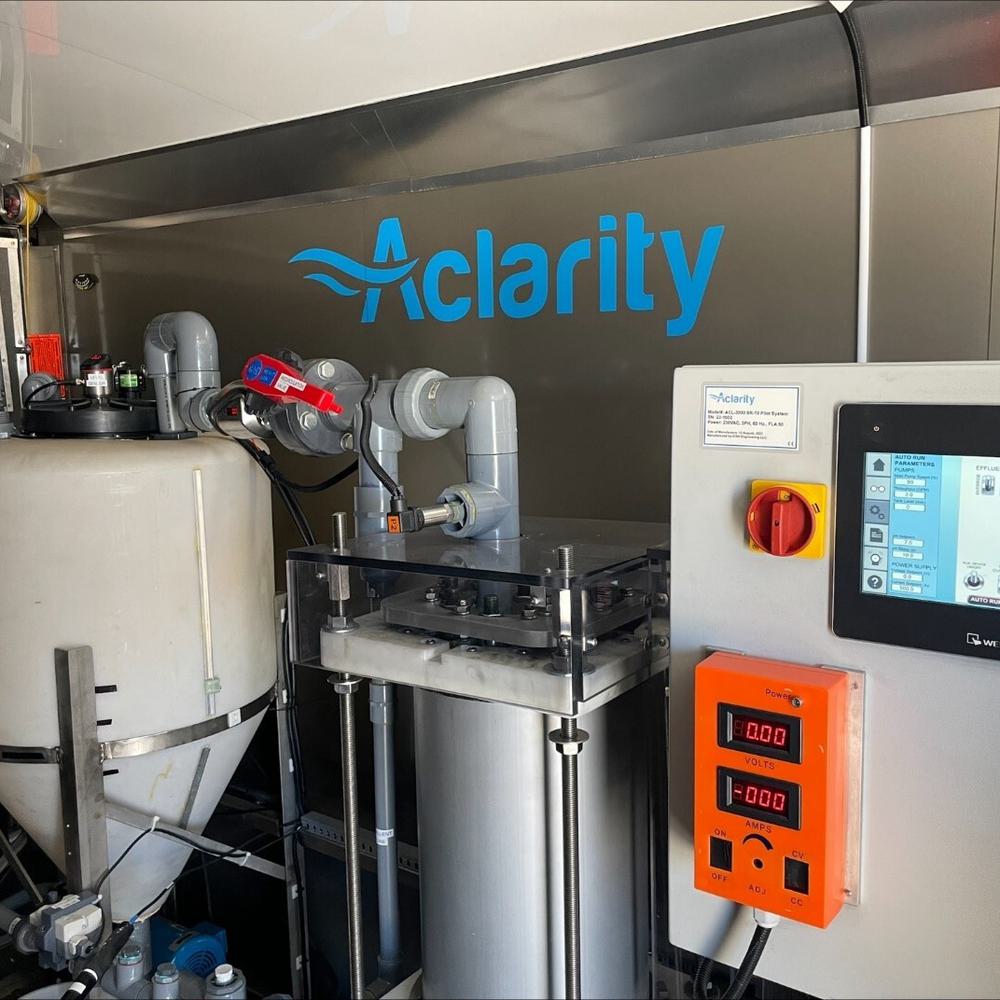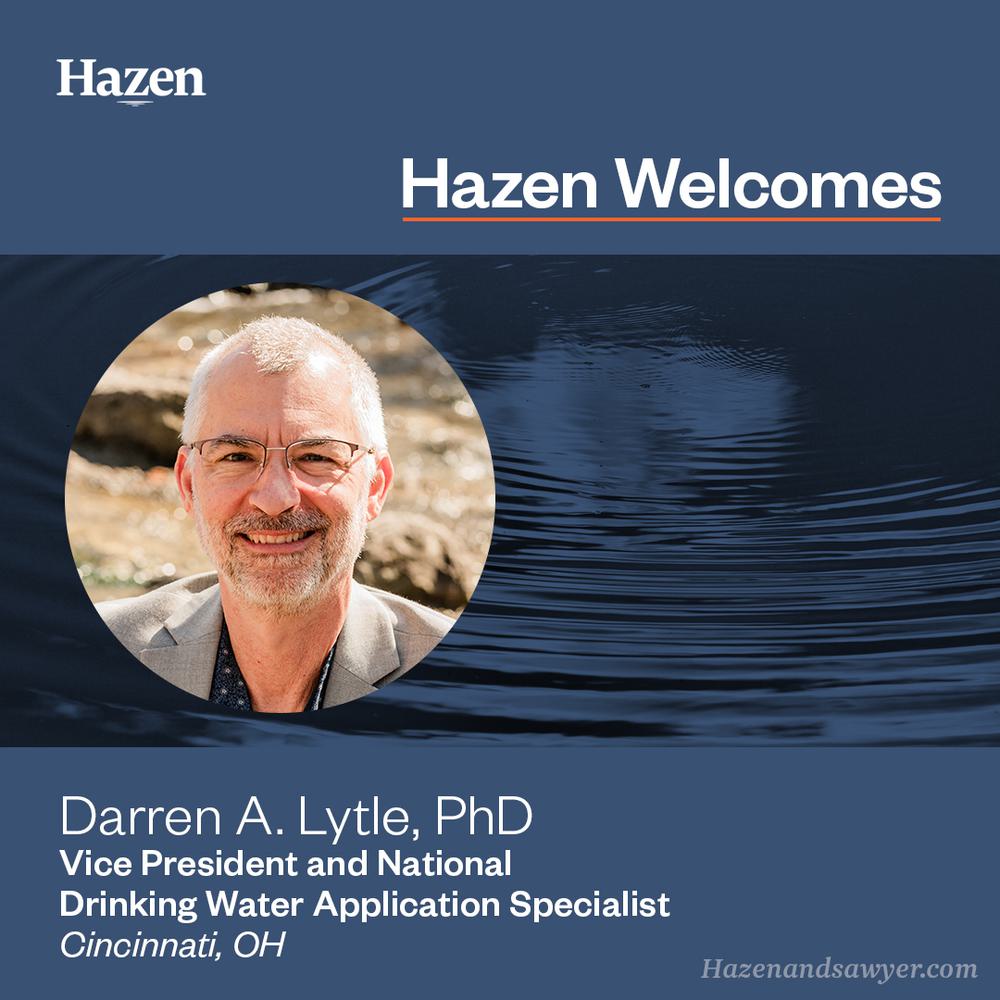Innovative Hybrid Nanofiltration System Provides Reliable Water Supply While Maximizing Plant Recovery
A three-stage nanofiltration system rises to the dual challenges of removing groundwater color and maximizing plant recovery.
At a Glance:
- Hazen custom designed a high recovery, hybrid nanofiltration (NF) system to reduce color in a groundwater source that supplies drinking water to the Signal Hill community.
- This unique configuration of three NF membranes has increased the plant’s recovery to 98% (only 2% wastewater) without developing scaling in the system.
- The new NF membranes did not require cleaning for 18 months after installation, indicating reduced downtime and operations and maintenance costs.

For more information, please contact Rich Franks.
Above: Nanofiltration has improved the aesthetic quality of Signal Hill’s water supply, while maximizing the City’s potential for groundwater recovery. Well No. 9 includes two hybrid nanofiltration (NF) trains supplied by Harn R/O.
Related Topics:
The City of Signal Hill, California constructed Well No. 9 in 2008, to augment two other groundwater sources and increase the reliability and redundancy of the local supply. The new well would help the City meet local demand and reduce dependence on imported water. In dry climate areas, water treatment plants with high recovery rates (and low-concentrate waste streams) are critical to making the best use of scarce local water supplies.
In the initial build of Well No. 9, the groundwater was found to have elevated levels of color (50-60 color units). Color in the water is generally only an aesthetic and not a health concern; however, the well was capped until treatment could be implemented. For this site, an ideal technical solution would remove the color from the groundwater while maintaining as high a rate of water recovery as possible. To this end, the City entrusted Hazen, J.R. Filanc Construction Company, and Harn R/O Systems, Inc. with the design and build of a new nanofiltration (NF) treatment facility.
The project has provided Signal Hill with a safe and reliable water supply and allowed them to minimize the cost of discharge to the sewers with the high recovery nanofiltration system.

This NF Train Conductivity Panel analyzes how each pressure vessel on the train is performing. The water coming out closest is the concentrated waste stream in comparison to the other streams from each pressure vessel. (Picture compliments of Harn R/O)
Nanofiltration for Color Removal and High Recovery
For the membrane system, Hazen designed a unique three-stage hybrid NF system using Hydranautics HydraCoRe50-LD membranes in the first two stages and Hydranautics ESNA1-LF membranes in the third stage. The system design required careful consideration of membrane hydraulics and control:
- A permeate backpressure valve prevents the over-drive of the first stage membranes
- A modulating valve allows user control of the first and second stage recovery
- An interstage boost pump maintains the permeate setpoint flow for the third stage
- A concentrate recirculation valve allows flow to maintain scouring velocity in the third stage.
HydraCoRe50-LD membranes provide great color removal with low removal of alkalinity, silica, and hardness, which allows the third stage to increase the overall recovery of the plant to 98% without scaling the system. An added benefit of the HydraCore50-LD membranes is they are chlorine tolerant to allow robust cleaning.

This diagram shows the treatment process flow at Well No. 9. The three-stage NF system achieves 98% recovery. The typical recovery rate for ground water systems is 80% - 85%.
“Each stage of nanofiltration builds recovery. The key is the type of membranes we selected, particularly for stages one and two. These were specifically chosen to reduce color and to pass hardness, silica, and alkalinity. That allows the more conventional NF membrane in the third stage to operate at high recovery without scaling,” notes Hazen Senior Associate Silvana Ghiu, PhD.
During construction, Benzene was found in the groundwater. Benzene is common in industrial settings and the City of Signal Hill has a history of industrial development and significant oil-producing wells. Since Benzene can pass through NF membranes, Hazen provided process selection and input toward the installation of a granular activated carbon (GAC) system. Ultimately, the NF system’s ability to remove color and other organics make it a solid pretreatment option for GAC as a Benzene removal method, extending the life of the GAC media and reducing operating and maintenance costs for the owner.

A cartridge filter pretreatment system catches large particles, protecting the NF trains.

One of Well No. 9’s dual NF trains with operator interface and conductivity analyzer panel. Each train is capable of 600 gpm and expandable to 700 gpm. (Picture compliments of Harn R/O)
Setting New Recovery Benchmarks for Groundwater Systems
By upgrading Well No. 9 to an advanced treatment process, the City of Signal Hill has not only improved the aesthetic quality of its water supply but has also made considerable strides in conserving scarce local water resources. Reaching 98% recovery is a significant achievement; the typical rate for groundwater systems ranges from 80% - 85%. Well No. 9’s three-stage NF system coupled with a GAC system demonstrates a novel solution to augment scarce local water supplies, increase reliability and redundancy, and reduce the need to import water.


















